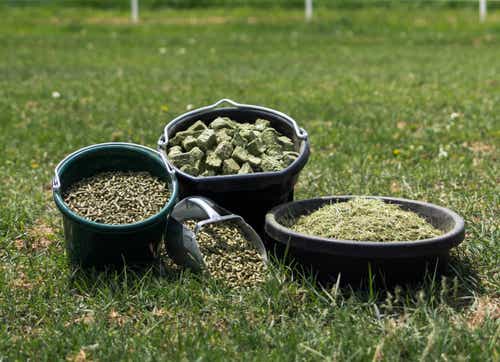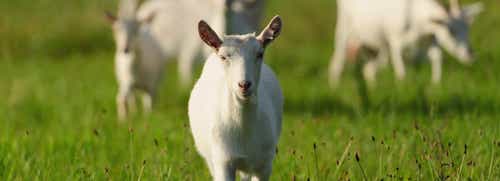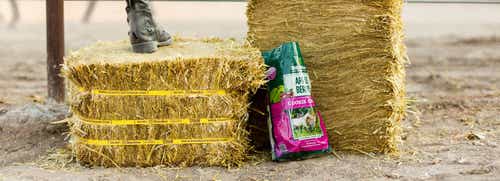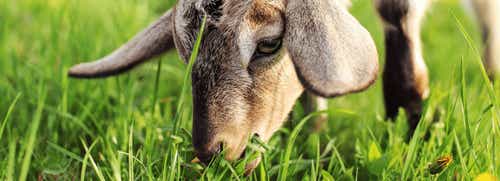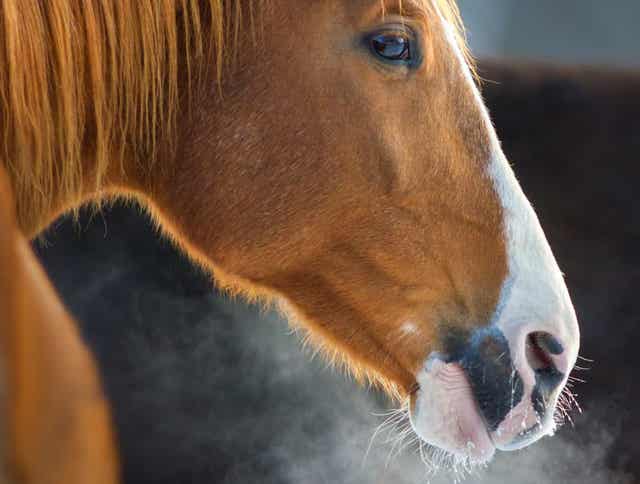
Winter Feeding Easy Keeper and Hard Keeper Horses
Winter seems so far away, but it is just around the corner. Are you ready? Is your horse ready?
In the next couple of months, understanding “Lower Critical Temperature (LCT)” will be important for caring and feeding your horse(s) properly. LCT is the temperature below which metabolic heat production must be increased to maintain body temperature.
For mature horses, their LCT will fall around 5°F for a horse with a thick coat and 41°F for a horse with a thin coat. Senior horses over 20 years old, often have a thinner coat and will fall into a LCT of around 41°F. LCT for young horses ranges between 12°F for those with thicker coats and 32°F for thinner coats.
How to Feed as the Temperature Drops
Forage is an essential part of every horse’s diet, whether an 18 hand Belgian or 13 hand welsh pony. Equine digestive systems are designed to digest forage. As temperature drops in the colder months, not only do we need our normal supply of forage stocked in our barns, but we need to be prepared to feed more hay, should the winter conditions prove to unforgiving this season.
For each decrease in coldness of 1°F below the critical temperature, there is an increase in digestible energy requirements for body temperature maintenance. Table 1 shows the estimated feed energy increase at different magnitudes of cold below the lower critical temperature of mature horses.
For example, a horse with a thin coat and a LCT of 41°F, with no change in temperature (41°F), will have a 0 megacalories (Mcals) increase per day, therefore 0 pounds of feed intake increase per day. Let’s say the temperature drops 20 degrees, so it is 21°F outside. In this case, your thin coated horse will need to increase their Mcals by 4, which means an increase of 4 pounds of forage per day to maintain body weight.
| Difference in F Below Critical Temperature (°) | Digestible Energy Increase (Mcals/day) | Average Feed Intake Increase (lb/day)* |
|---|---|---|
| 0 | 0 | 0 |
| 10 | 2 | 2 |
| 20 | 4 | 4 |
| 30 | 6 | 6 |
| 40 | 8 | 8 |
*Assuming an energy density of 1.0 Mcal/pounds, which is typical of good quality forage
What Type of Effect Does Rain and Wind Have on Your Horse?
Wind can make a tolerable temperature day feel miserable. Add moisture? Even worse. Table 2 shows, with just 10-15 mph winds at 32°F, that is an increased need of 4-8 Mcals per day, which means 4-8 pounds per day for your horse. Given our previous scenarios with Table 1, that’s close to a 10 degree drop also, so not only will your horse need 4-8 pounds of additional forage to account for the wind, they’ll also need another almost 2 pounds. This helps keep your horse warm during these cold conditions and ensure body condition maintenance.
| Average temperature | Conditions | Additional Mcal/day | Additional Hay |
|---|---|---|---|
| 32°F | 10-15 mph wind | 4-8 Mcal/day | 4-8 pounds of hay |
| 32°F | Rain | 6 Mcal/day | 6 pounds of hay |
| 32°F | Rain and wind | 10-14 Mcal/day* | 10-14 pounds/day |
*May not be able to consume enough hay to meet requirements
Interested in learning more? One of our Standlee equine nutritionists, Dr. Tania Cubitt, goes into further detail about the following points in a webinar recording titled, “Winter Feeding – Can I Feed My Easy Keeper and Hard Keeper Horses the Same?”:
- Energy Requirements
- Water Requirements
- Fiber Requirements
- Differences in nutrient intake between hard keepers and easy keepers
Haven’t had a chance to view one of our webinars? Hear what attendees have been saying…
Marietta A.This presentation was easy to understand from a person delivering university level content, practical advice that is easy to apply at home, my impression of Standlee products has increased exponentially."
Simona S.I really enjoy the webinars. They are educating and straight forward. Please keep offering these. Thank you very much for your efforts!"
Mike G.I really appreciate Standlee going out of their way to provide these webinars. The information is always of great interest and value. THANK YOU!"
Janet P.Thank you so much for organizing this and opening discussions. I love your products and I don't think I can get enough information about any and all of what Standlee has to offer. Thank you for doing such a great job!"
Nikita S.Love your webinars! I always learn from them. Thank you!!"



